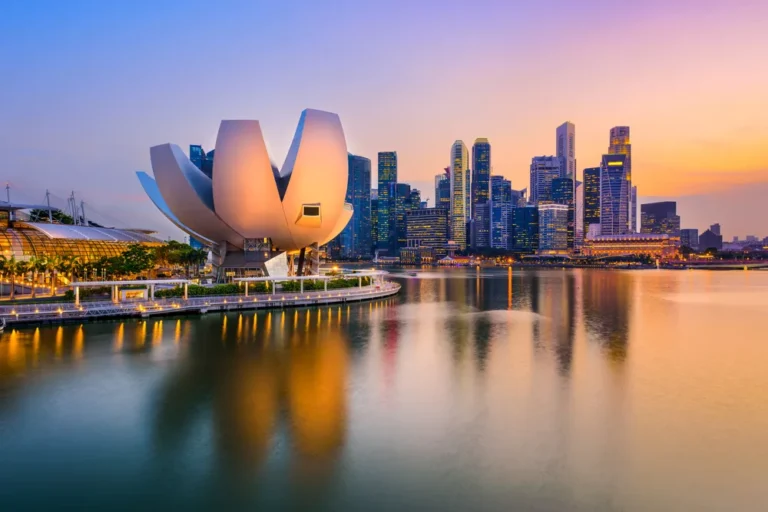Indonesia’s property sector faces tax debate and housing targets
Government push for one million vertical homes and plans to raise landed house taxes draw calls for transparency and balanced incentives

Indonesia’s real estate sector is entering a decisive phase, marked by policy shifts, ambitious housing programmes, and the need for greater collaboration between government and developers. Recent debates over tax reform, alongside a push to deliver one million affordable vertical housing units, have underscored the balancing act required to achieve sustainable growth in the country’s property market.
Industry experts emphasise that transparent policies and regulatory clarity are vital to maintaining investor confidence while addressing the urgent demand for affordable housing. According to The Jakarta Post, developers have expressed concern over government plans to raise landed house taxes, warning that a steep increase could dampen market sentiment and stall growth in the residential segment.
Striking a balance on taxation
One of the industry figures weighing in on this discussion is Djinadi Gunawan, Managing Director of PT Meinhardt Indonesia and a Member of the Judging Panel of the PropertyGuru Indonesia Property Awards. He stressed that policymakers and developers must work hand in hand to balance the government’s fiscal objectives with market realities.
“Policymakers and developers must collaborate through balanced incentives and regulatory clarity,” Gunawan said. “Instead of sharply raising landed house taxes, gradual adjustments paired with tax breaks for affordable housing projects could ease resistance.”
His comments reflect broader calls for compromise, as stakeholders explore ways to meet revenue needs without stifling demand. Based on Tempo.co, Indonesia’s incoming government has pledged to build one million affordable vertical housing units, signalling the urgency of encouraging development while ensuring affordability.
Linking taxation with infrastructure
Gunawan also argued that tax reforms should generate visible benefits for both developers and the public. “Create benefits to the taxpayers and developers by way of improving local infrastructure,” he said. Transparency, he added, must also be central to the process: “Transparency to projects funded by the increased taxes” would help foster trust and accountability.
This perspective aligns with ongoing efforts to address infrastructure gaps that have historically weighed on property development. Improved transport links, utilities, and public amenities not only enhance housing projects but also stimulate long-term economic growth.
Supporting vertical housing goals
The government’s target of building one million affordable vertical housing units represents a critical opportunity for collaboration. Gunawan believes developers can play a key role by aligning their projects with this national agenda.
“Developers should align with the government’s plan to deliver one million vertical housing units by adopting cost-efficient designs and mixed-use developments that attract both locals and expatriates,” he said.
Such an approach reflects trends highlighted in Colliers’ Quarterly Property Market Report (Q2 2025), which noted gradual recovery in Jakarta’s apartment sector, supported by demand from younger households and expatriates. Integrating affordability with quality urban living remains a core challenge, but mixed-use projects and transit-oriented developments (TODs) are increasingly seen as part of the solution.
Streamlining regulation to boost investment
Beyond design and affordability, the investment climate is shaped by bureaucracy and regulatory frameworks. Gunawan noted that streamlined permitting and infrastructure support would encourage greater investment while ensuring that homes remain within reach of the broader public.
“Transparent policies on land use, financing, and tenancy rights can balance investor confidence, urban growth, and public housing needs, fostering a sustainable and inclusive housing market in Indonesia,” he added.
Such transparency is also vital in reassuring expatriates, who continue to represent a key segment in Jakarta’s high-end rental market. Data from Colliers’ H1 2025 Jakarta Expatriate Housing report revealed that the demand for premium housing is steady, supported by international schools, lifestyle amenities, and infrastructure improvements.
Market outlook
Despite challenges, Indonesia’s property sector shows resilience. An OpenPR industry outlook for 2025 reported steady growth across key segments, with developers diversifying portfolios to capture demand in both affordable and luxury markets. Strategic projects in Greater Jakarta and secondary cities continue to shape the landscape, reflecting the country’s urbanisation and demographic shifts.
The ability to balance government initiatives, such as taxation reform and affordable housing delivery, with investor needs will be crucial in sustaining this momentum. Developers, policymakers, and financiers must navigate these dynamics with careful planning and open dialogue.
Awards highlight Indonesia’s achievements on a regional stage
Amid these structural discussions, Indonesian developers have demonstrated their ability to compete — and win, at the highest levels. At the 19th PropertyGuru Asia Property Awards Grand Final 2024, Indonesian companies earned recognition across multiple categories, underscoring their capacity for innovation and excellence on a regional stage.
Among the winners were:
- Paramount Land, crowned Best Township Developer (Asia)
- BSD City by Sinar Mas Land, awarded Best Mega Township Development (Asia)
- LRT City Cibubur by PT Adhi Commuter Properti Tbk., winner of Best TOD Condo Development (Asia)
- Flora at Summarecon Bandung by Summarecon Group, named Best Completed Housing / Landed Development (Asia)
- Salty Jim Villa by DM Projects Group, honoured for Best Housing / Landed Interior Design (Asia)
These accolades celebrate the scale, design, and community impact of Indonesian developments, while also showcasing the country’s ability to set benchmarks across Asia, Australia, and the Middle East.
Linking policy, development, and recognition
The recognition of Indonesian projects at the regional awards illustrates the industry’s dual narrative: on one hand, the pursuit of policy reforms to ensure housing affordability and inclusivity; on the other, the proven capacity of developers to deliver world-class projects.
By aligning with government initiatives, embracing transparent policies, and pursuing innovation, Indonesia’s developers can continue to thrive both domestically and internationally. As Gunawan emphasised, the path forward requires collaboration and clarity: “Policymakers and developers must collaborate through balanced incentives and regulatory clarity.”
This message resonates not only within Indonesia but also across Asia’s property sector, where markets face similar challenges of affordability, urbanisation, and investor confidence. The experience of Indonesian developers, navigating tax reforms, supporting vertical housing, and excelling on regional platforms, provides valuable insights into the future of sustainable property growth.
The article was originally published on asiapropertyawards.com.
Recommended
ARES Whitepaper Volume 4: Powering communities – The catalysts of urban evolution
Fresh perspectives on sustainability, lifestyle, and design shaping the future of real estate
ARES White Paper Volume 3: The era of adaptive reinvention
Pioneering sustainable and innovative practices in urban development
ARES White Paper Volume 2: Unravelling the power of data revolution in real estate
Insights on proptech, smart cities, and sustainable development
ARES Digital White Paper Volume 1: The fundamentals of responsible building
Green and climate heroes join forces to discuss how Asia Pacific can weather the current environmental crises and the looming effects of climate change






